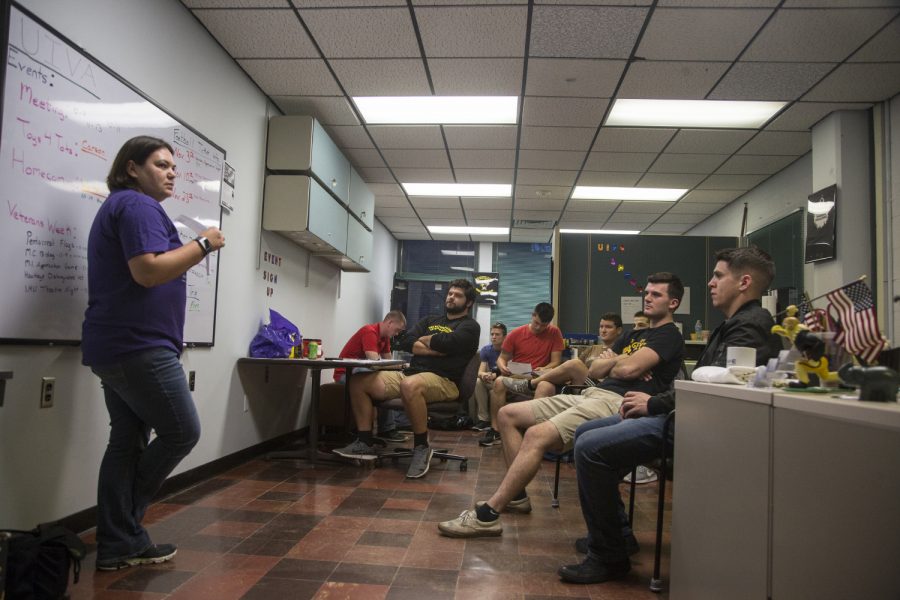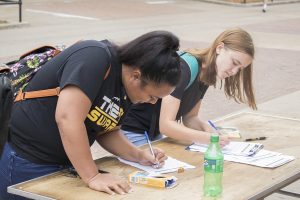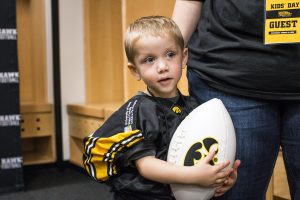PAVE gives student veterans ways to succeed
The Peer Advisors for Veteran Education program gives student veterans a way to connect with students in a similar situation as them.
Tiffany Baker-Strothkamp, Team Leader of PAVE and President of UIVA, addresses members of PAVE during their monthly meeting in the Communications Center on Tuesday, October 9, 2018. PAVE, or Peer Advisors for Veteran Education, pairs new student veterans with a student veteran mentor. Their goal is to make the transition back into civilian life easier.
October 11, 2018
The Peer Advisers for Veteran Education program provides new student-veterans the opportunity to socialize and connect with other student-veterans, and the program now has the capacity to reach out to those who need it.
Matthew Miller, program director of military and veteran student services, said that when he arrived at UI, the PAVE program had very few contacts for new students. Now, he said, officials have revitalized the program and more people are involved.
PAVE provides incoming student-veterans with advisers to aid them on campus. It gives them someone to ask questions of and rely on, in addition to being the person who has experience on campus, Miller said.
RELATED: Veterans kick off ruck march for suicide awareness at Kinnick
The program gives them someone to form a connection with because they have had common experiences to build their relationship on, he said.
“I would love to see the program continue to grow and thrive, as well as provide resources to veterans on campus and let them know they have allies,” Miller said.
PAVE advisers will soon begin having mental-health first-aid training to allow them to be able to recognize signs and symptoms of mental-health issues before they get worse, he said. With the ability to recognize the symptoms, advisers are able to reach out to their peers and offer assistance to those in crisis.
Jennifer Croker, a UI student and PAVE adviser, said the program helped her with the social aspect of being a student. PAVE and the VA has helped her meet people and socialize. She noted that it can be difficult to socialize in a classroom setting because of the age gap she has with other students.
The program allows students in similar areas of study to become connected and assist each other in their coursework, she said. The advisers also help fellow students find internships and scholarships.
Jacob Schillo, a UI graduate student and PAVE team leader, said veterans coming back to school can undergo a hard adjustment from a team-oriented environment to focusing on oneself. The PAVE program can help students figure out what they want to do and help them be successful as soon as they get to the UI, he said.
As a peer adviser, Croker sends out emails to incoming students with information about the program. When they respond, she said, she discusses the way they would prefer to meet. It’s up to the student how frequently they meet with their peer adviser and whether or not their meeting will be over the phone, email, or in person.
“It’s always really nice to know you have a place to go to ask a question and get help,” Croker said. “No one is going to pass you off to someone else.”
Other schools don’t have programs like this, Schillo said, and student-veterans may go through their first few years without assistance. With the experiences he had in undergraduate school, he said, he believes what he learned will allow students to succeed and benefit.
“We want to be more active in the community at the University of Iowa, so it becomes more of an awareness thing,” Schillo said. “We want to increase the number of advisers we have so we’re better able to then manage incoming students.”






